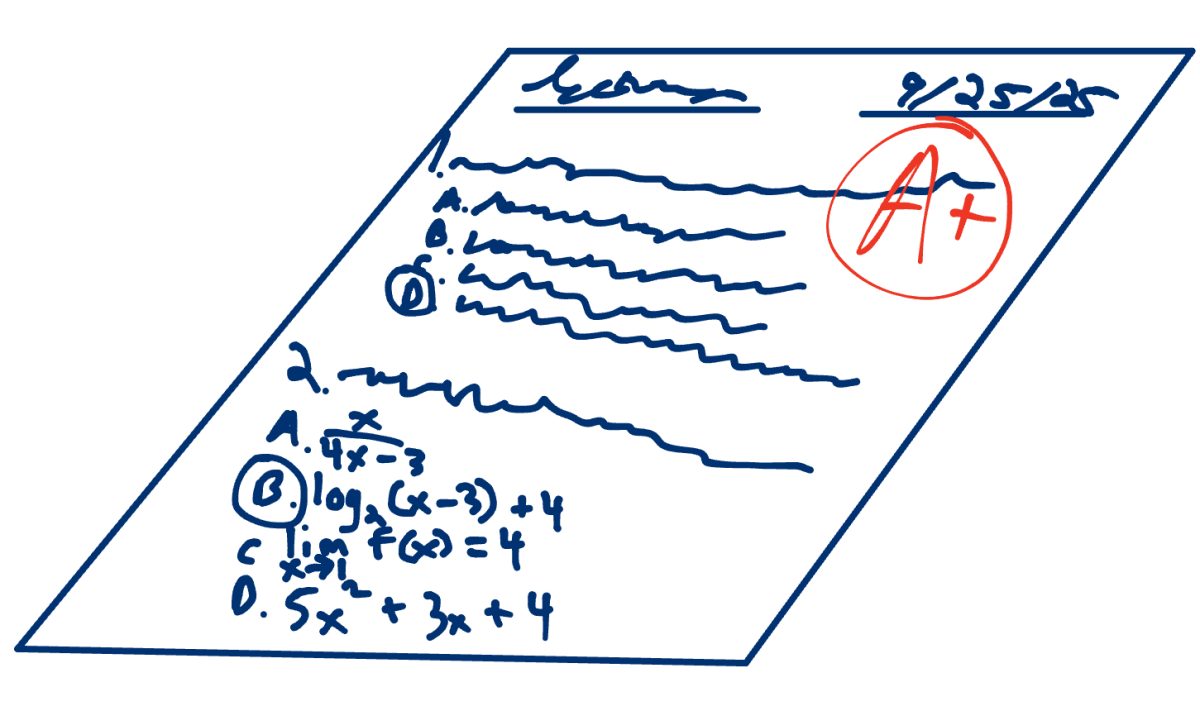In the last decade, students have found themselves more and more concerned over their grades, sometimes foregoing sleep or their learning.
“I think that a lot of students who value their grades will go far to protect them,” said sophomore Jackson Mascio.
When asked how far they think students will go to save their grade, sophomore Austin Murmello said, “To a pretty high degree. Cheating and lying to save their grades. Extreme.”
The use of cheating and lying might fix the grade for students, but it will become detrimental in the future when they need to know the subject that they have not learned and have instead used cheating as a crutch and way out. This results in cheating doing serious harm because it might turn into a habit whenever a student is struggling in something that they cannot overcome quickly. Students might think that they won’t turn to cheating, but they underestimate how easy it is to ask a friend for answers or to use AI instead of doing the work themselves and learning. Forming a habit of cheating will always hurt you because you might be kicked out of college, or might make a mistake at your job that would have serious consequences such as someone’s life.
The main way parents check a child’s success is through grades. Parents often use these grades to compare their child’s success to other students in their school, which can put an unnecessary pressure on students to uphold good grades. There can also be the presence of internal pressure on students, who put lofty goals on themselves and find themselves under stress.
“I find myself more concerned about my grade because it controls my future,” Mascio said.
“I think [grades are] pushed too hard and we should have other values,” added Murmello. Students realize this and this has resulted in some filling their schedule with after-school-activities and sports, which leaves no time for themselves, which is vital for personal growth, mental health, and productivity.
“I think the excess of grade obsession can lead to an unhealthy learning environment,” Murmello said. A study from Queen’s University shows that after COVID-19, grades have risen in the Greater Toronto area, which is a phenomenon that is called ‘compassionate grading’. This excessive grading can hurt students because it can lead to your school grade not being an accurate representation of your proficiency in a class.
A survey conducted by Queen’s University shows that teachers think one of the main obstacles in education is the obsession with grades both from students and teachers. To combat this unhealthy prioritization of grades, teachers are only using formative assessments in the first part of the school year, so they can act appropriately based on how the students perform. Furthermore, teachers are creating other ways for parents to see how well their child is doing in school which takes the pressure off of grades in school. Slowly adopting some of these strategies at Saucon Valley would alleviate the attention focused on grades in education.









